nlopchantamang.com
Mushrooms’ Moment
Shân Osborn
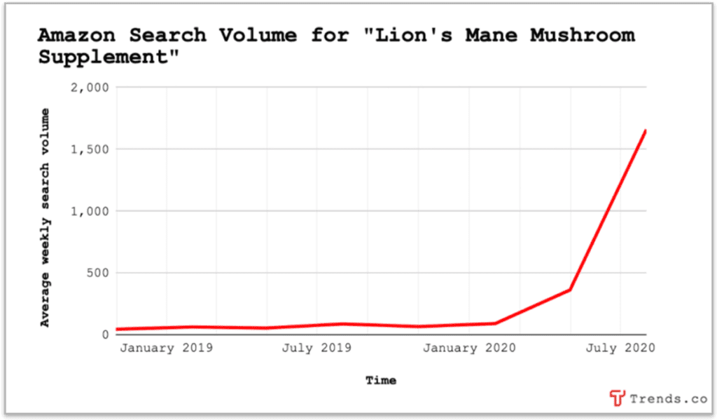
Source: Subreddit Stats
The Signal: Maybe you are not one of the 201k (!) people who search for “mudwater” each month. We’ll break it down for you: an adaptogenic coffee alternative that promises the energy and focus without the crash, AKA mushroom coffee.
Soaring interest in mushroom coffee signals just the tip of a mushroom(ing) market, which will only be spurred as states (the first of which was Oregon) begin to legalize the regulated use of psilocybin ’shrooms as a treatment for anxiety, addiction, and depression.
The global fungi industry is forecast to exceed $86B by 2025, up from $53.7B in 2019. Growth will be powered in part by culinary demand, but an even larger driver will be rising adoption by the pharmaceutical industry. Varieties such as Chaga, not ever seen on a dinner plate, are now in the supplement spotlight.
The Functional Mushroom Market: Until recently, products were limited to a handful of basic supplements. These are now being replaced by well-branded and innovative alternatives.
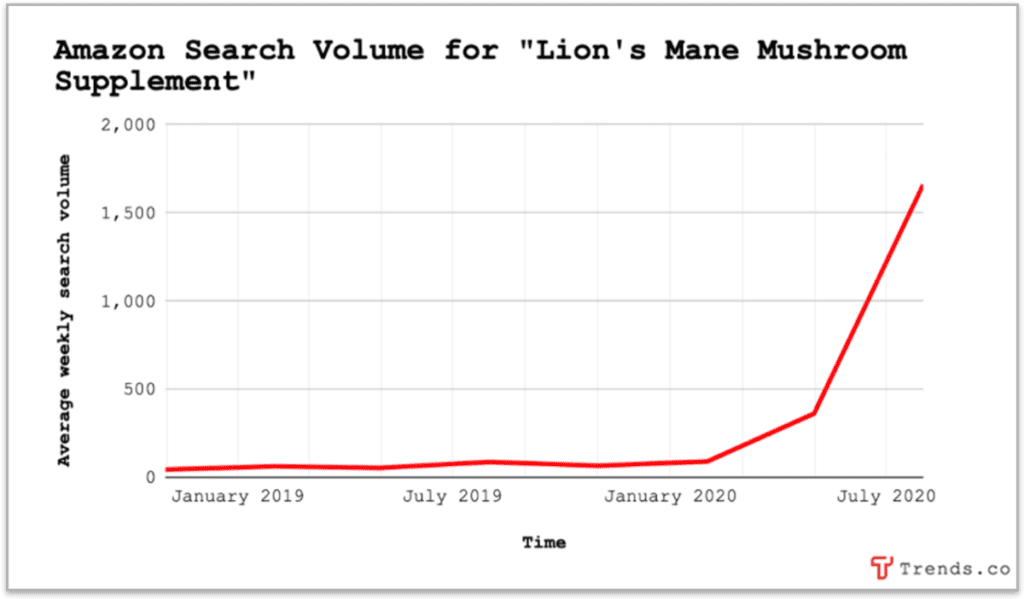
- Mushroom Coffee: Leading US brands are Four Sigmatic and MUD\WTR. Four Sigmatic’s website has 200k+ visits per month, according to Similar Web.
- Powders and Elixirs: Rritual, a 2020 startup, has been described as “working to bring the first premium brand of mushroom and adaptogenic elixirs to market.” Rritual’s online site has consistently sold out of all products for the last 8 weeks. The firm has just released a mushroom adaptogen news app and a brand new suite of elixirs.
The functional mushroom market is wide open, and the few well-branded products available are being met with high demand.
Beyond a focus on powders, entrepreneurs could branch out into the ever-popular functional drinks market; the RTD/coffee-in-a-can trend is an attractive option.
There is opportunity to target specific demographics with high energy drink consumption, and provide them with healthier alternatives to taurine. Great places to start would be ever-tired parents (thank you to Trendster Aaron Pottichen for putting this on our radar), and coders and gamers (S/O Melanie Balke.)
Alcohol-free spirits are also seeing some impressive growth, and their health-focused natural-buzz promise would pair perfectly with mushroom extracts.
Trendster Andreas Duess has already capitalized on this opportunity by producing adaptogenic mushroom tonics.
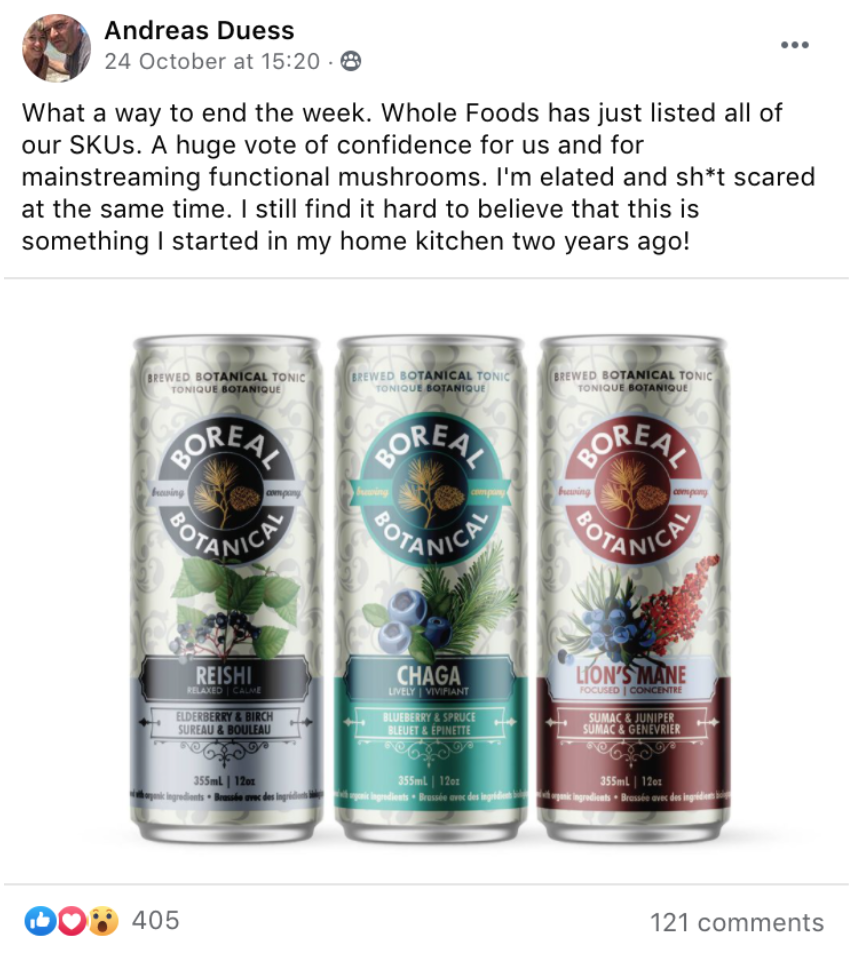
Like nutritional yeast, mushrooms add umami flavor (and nutrition) to a vegan diet. You could develop functional mushroom products in a similar line -- from sprinkles to jerky -- to serve the ~9.7m Americans who are turning plant-based.
While the adaptogenic qualities of mushrooms are widely studied, products are not yet specifically marketed as such. Entrepreneurs could focus on natural supplements for stress, anxiety, and sleep issues. Monthly search volumes, according to Keywords Everywhere:
- “Relief for stress”: 110k
- “Natural sleep aid”: 27.1k
- “Anxiety remedy natural”: 27.1k
There may also be an opportunity to replicate what Hydrant did when it added L-theanine to its existing hydration mixes to create a new product, Hydrant Energy, for “calm, cool, and sustained energy & hydration.”
Homegrown ’Shrooms: Mushrooms don’t need much to thrive, but their considerably short shelf life and fragility make them difficult to transport and store. Mushroom-growing kits can offer attractive, fresh solutions. The trend has already garnered 110k+ subreddit subscribers.
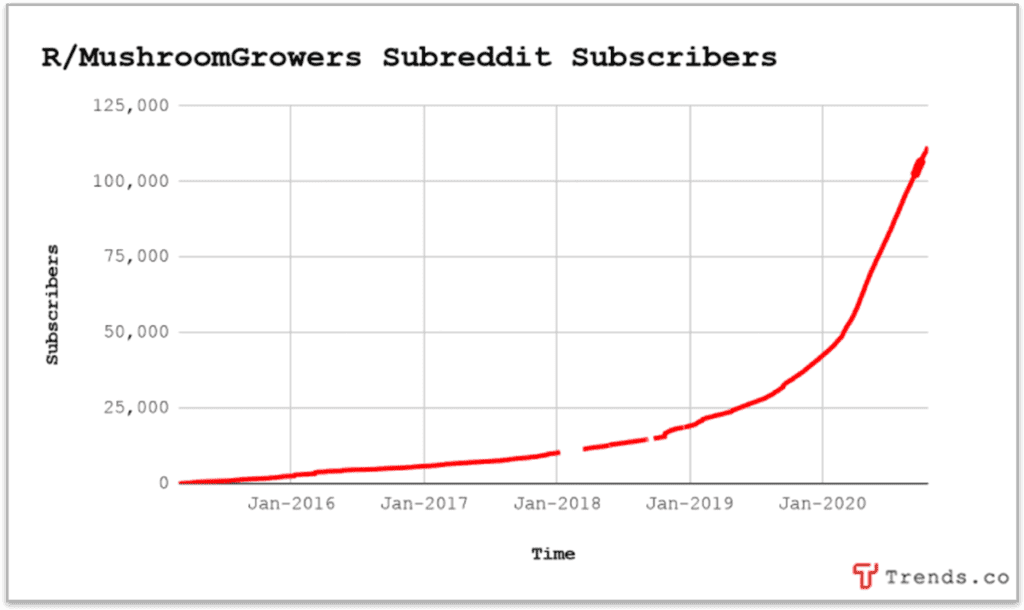
Options for you include:
- Offering a range of widely available at-home mushroom grow kits:
- Amazon stocks a number of mushroom-growing supplies, but only one brand is offering full kits (from $12 to $44); they are currently the #2 bestseller in the “vegetable, plant and seeds” category -- bringing in $132k+/month, according to Jungle Scout.
- Most grow kits are a once-off harvest, or at best have limited reuse; you could offer mushroom kit subscription services, complete with recipes and spices tailored to that month’s variety.
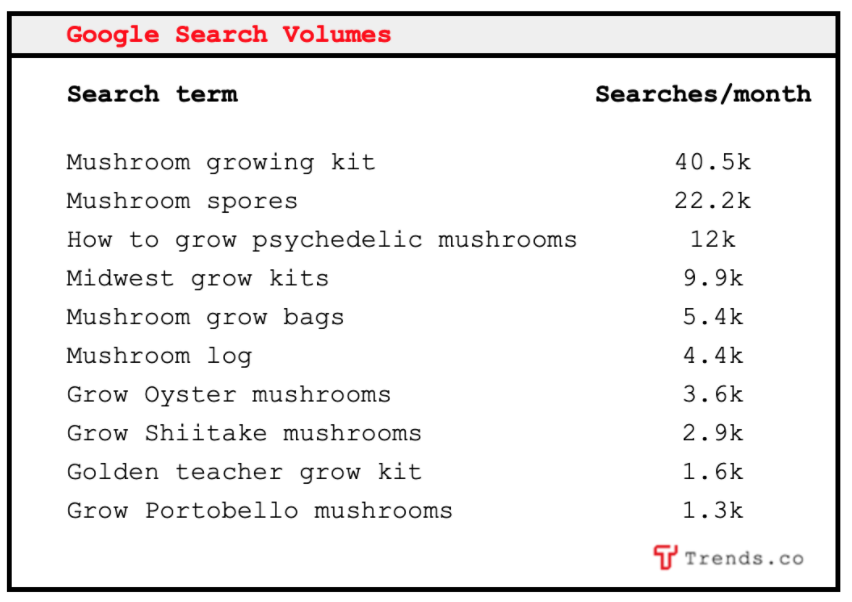
- Creating an urban mushroom farm:
- Infarm has recently enjoyed soaring success with its mini urban greens farms; why not do the same with mushrooms? You could provide retailers (and even restaurants) with a self-harvest option for customers.
- You don’t need to invest in hydroponics: Mushrooms can also be cultivated using soil, wood chips, coir, etc.
Fungi Experiences: The global agritourism industry is forecast to reach $117B+ by 2027, from ~$69B in 2019. Pick-your-own produce is becoming increasingly popular with consumers and attractive for small farmers. Apple-picking, a national favorite, is the main source of income for many small family-owned orchards.
#MushroomHunting has 457k+ Instagram tags; it’s only a matter of time before mushrooms are added to the list of “U-Pick” options.
Why not pair mushroom agritourism with the rising rewilding and experience trends and provide wild mushroom foraging excursions? You could branch out to include value-adds such as mushroom cooking, pickling, and preserving courses.
Mushroom Fashion: Last month, status brands including Adidas, Stella McCartney, and Lululemon partnered with Mylo, a mycelium material produced by Bolt Threads (total funding: $213m), for product releases set in 2021.
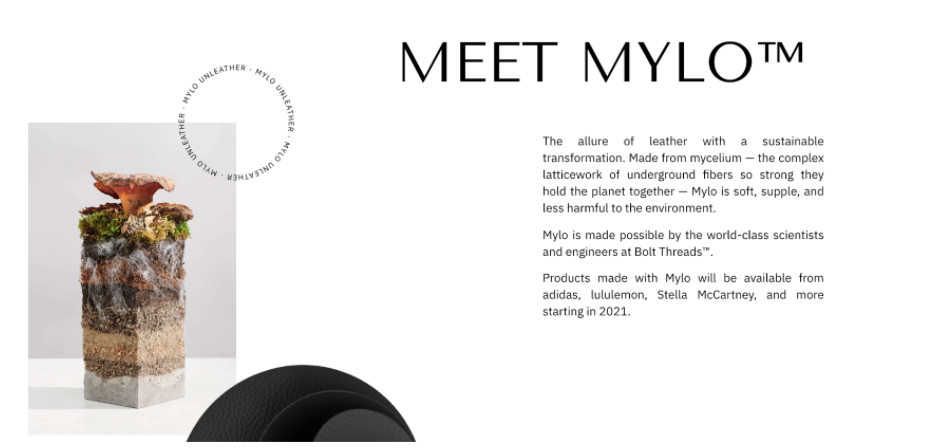
Demand for sustainable fashion is on the rise, with ⅔ of consumers believing it’s “even more important to limit climate change following COVID-19,” per a McKinsey report.
With mycelium textiles on their way to becoming more accessible, opportunities include creating brands that specialize in mycelium products (like Allbirds does with wool), ranging from “unleather” watches to couches to phone cases.
Additionally, the mushroom material is only biodegradable under certain conditions, so there’s potential in optimizing the end-of-life and upcycling processes (like Loop does with plastic).


Leave a Comment